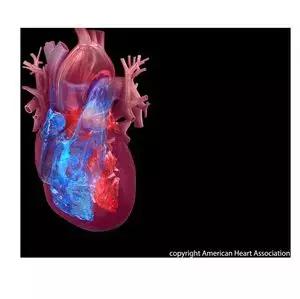- Home
- Medical news & Guidelines
- Anesthesiology
- Cardiology and CTVS
- Critical Care
- Dentistry
- Dermatology
- Diabetes and Endocrinology
- ENT
- Gastroenterology
- Medicine
- Nephrology
- Neurology
- Obstretics-Gynaecology
- Oncology
- Ophthalmology
- Orthopaedics
- Pediatrics-Neonatology
- Psychiatry
- Pulmonology
- Radiology
- Surgery
- Urology
- Laboratory Medicine
- Diet
- Nursing
- Paramedical
- Physiotherapy
- Health news
- Fact Check
- Bone Health Fact Check
- Brain Health Fact Check
- Cancer Related Fact Check
- Child Care Fact Check
- Dental and oral health fact check
- Diabetes and metabolic health fact check
- Diet and Nutrition Fact Check
- Eye and ENT Care Fact Check
- Fitness fact check
- Gut health fact check
- Heart health fact check
- Kidney health fact check
- Medical education fact check
- Men's health fact check
- Respiratory fact check
- Skin and hair care fact check
- Vaccine and Immunization fact check
- Women's health fact check
- AYUSH
- State News
- Andaman and Nicobar Islands
- Andhra Pradesh
- Arunachal Pradesh
- Assam
- Bihar
- Chandigarh
- Chattisgarh
- Dadra and Nagar Haveli
- Daman and Diu
- Delhi
- Goa
- Gujarat
- Haryana
- Himachal Pradesh
- Jammu & Kashmir
- Jharkhand
- Karnataka
- Kerala
- Ladakh
- Lakshadweep
- Madhya Pradesh
- Maharashtra
- Manipur
- Meghalaya
- Mizoram
- Nagaland
- Odisha
- Puducherry
- Punjab
- Rajasthan
- Sikkim
- Tamil Nadu
- Telangana
- Tripura
- Uttar Pradesh
- Uttrakhand
- West Bengal
- Medical Education
- Industry
Pet scans reveal relation between early CVD and brain function: Study

Spain: Middle-aged people who show early signs of cardiovascular disease also suffer from brain hypometabolism as demonstrated by PET scans, finds a recent study in the Journal of the American College of Cardiology. The findings suggest that early stages of Alzheimer's disease could begin years before the occurrence of dementia.
Atherosclerosis has been linked to cognitive decline in late life. However, the impact of subclinical atherosclerosis and cardiovascular risk factors (CVRFs) on brain metabolism at earlier stages is not yet explored. Considering this, MartaCortes-Canteli, Centro Nacional de Investigaciones Cardiovasculares (CNIC), Madrid, Spain, and colleagues sought to determine the association between brain metabolism, subclinical atherosclerosis, and CVRFs in middle-aged asymptomatic individuals.
The study included 547 asymptomatic middle-aged participants from the PESA (Progression of Early Subclinical Atherosclerosis) study with evidence of subclinical atherosclerosis. Participants underwent 18F-fluorodeoxyglucose (FDG)-positron emission tomography.
Global brain FDG uptake and voxel-wise analyses were used to evaluate the associations of cerebral metabolism with CVRFs and atherosclerotic plaque burden in carotids and femorals assessed by 3-dimensional vascular ultrasound.
Key findings of the study include:
- Global FDG uptake showed an inverse correlation with 30-year Framingham Risk Score (FRS) (β = −0.15).
- This association was mainly driven by the presence of hypertension.
- Carotid plaque burden was inversely associated with global brain FDG uptake (β = −0.16), even after adjusting for 30-year FRS.
- Voxel-wise approaches revealed that the brain areas most strongly affected by hypometabolism in association with 30-year FRS, hypertension, and carotid plaque burden were parietotemporal regions (angular, supramarginal, and inferior/middle temporal gyri) and the cingulate gyrus.
"In asymptomatic middle-aged individuals, cardiovascular risk is associated with brain hypometabolism, with hypertension being the modifiable CVRF showing the strongest association. Subclinical carotid plaque burden is also linked to reduced brain metabolism independently of CVRFs," wrote the authors. "Cerebral areas showing hypometabolism include those known to be affected in dementia."
"These data reinforce the need to control CVRFs early in life in order to potentially reduce the brain's midlife vulnerability to future cognitive dysfunction," they concluded.
The study titled, "Subclinical Atherosclerosis and Brain Metabolism in Middle-Aged Individuals: The PESA Study," is published in the Journal of the American College of Cardiology.
DOI: https://www.sciencedirect.com/science/article/pii/S0735109720381298
Dr Kamal Kant Kohli-MBBS, DTCD- a chest specialist with more than 30 years of practice and a flair for writing clinical articles, Dr Kamal Kant Kohli joined Medical Dialogues as a Chief Editor of Medical News. Besides writing articles, as an editor, he proofreads and verifies all the medical content published on Medical Dialogues including those coming from journals, studies,medical conferences,guidelines etc. Email: drkohli@medicaldialogues.in. Contact no. 011-43720751


